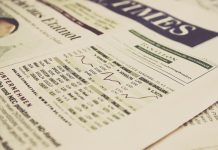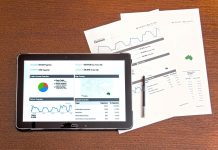
The first-quarter GDP will drop due to the increasing Covid-19 cases and restrictions, according economists from JPMorgan.
According to them, the economy will expand in the second and third quarter, based on the progress of vaccine development.
“This winter will be grim, and we believe the economy will contract again in 1Q,” the economists wrote.
They predicted that the first-quarter GDP will contract by 1% after an increase of 2.8% in the fourth quarter. The economy will rally in the second quarter, they said. Moreover, they anticipate a growth of 4.5% followed by a robust 6.5% in the third quarter.
The economists also forecast about $1 trillion of fiscal stimulus, starting near the end of the first quarter.
“One thing that is unlikely to change between 2020 and 2021 is that the virus will continue to dominate the economic outlook. ... Case counts in the latest wave are easily surpassing the March and July waves,” the economists wrote.
Economic reopenings have helped the economy recovery slightly, they said. “The economy no longer has that tailwind; instead it now faces the headwind of increasing restrictions on activity. The holiday season — from Thanksgiving through New Year’s — threatens a further increase in cases,” they added.
The economists predict monthly declines in employment at different points over the next few months, but monthly job gains could turn into millions around the middle of the year and then moderate again late in 2021.
“We think the trends in the labor market should roughly follow what we expect for consumer spending — job growth should weaken noticeably around the turn of the year as the virus weighs on the economy, and then pick up again early next year once vaccine distribution eases virus concerns and fiscal support boosts growth,” they wrote.
First-quarter GDP vs. Covid peak
Dr. Scott Gottlieb, former commissioner of the FDA and a CNBC contributor, said that the U.S. may experience Covid peak in January as the country experiences outbreaks.
He said that scientists and public health officials still warn that the U.S. could experience Covid peak even if there is reported progress in vaccine development.
According to Pfizer and BioNTech’s statement, their coronavirus vaccine was more than 90% effective in responding to Covid-19 among those without proof of prior infection. They consider the development as “a great day for science and humanity.”
“I think we can see light at the end of the tunnel,” Pfizer Chairman and CEO Dr. Albert Bourla said during an interview on CNBC’s Meg Tirrell on “Squawk Box.” “I believe this is likely the most significant medical advance in the last 100 years, if you count the impact this will have in public health, global economy.”
“We are three to four weeks behind Europe now and we are headed in the same direction in terms of the progression of the disease,” Dr. Scottlieb said. “We are not moving fast enough to change our behaviors, reduce mobility, and take policy actions to stop the trend.”
“Looking at the epidemic curve, Covid cases will peak in January and we will see cases starting to decline in March,” he said.
“Hopefully, we should have some semblance of normalcy in the summer of 2021. By that time, it’s hoped the older population will be vaccinated. By the fall of 2021, the vaccine will be more available to people of all ages,” he noted.






